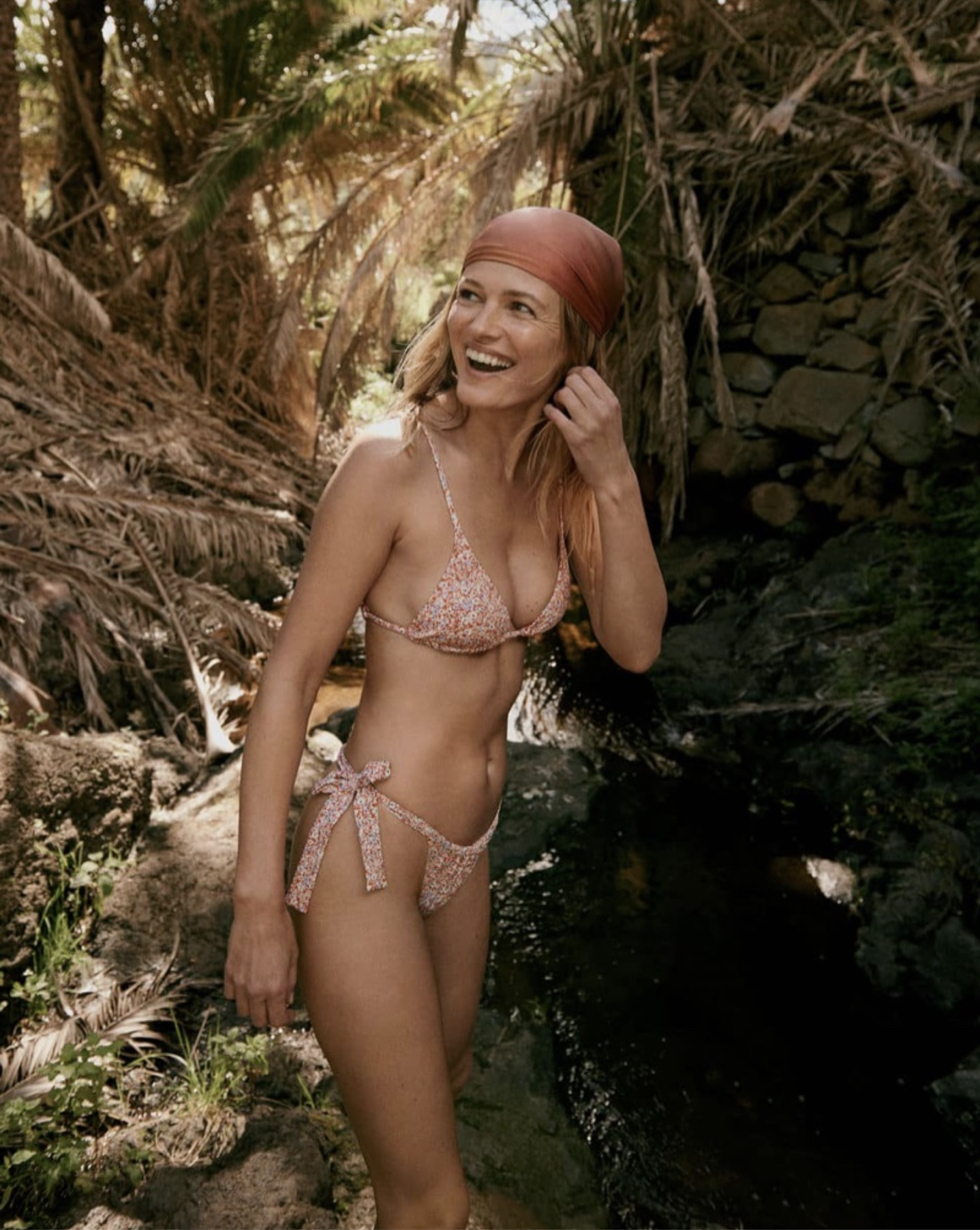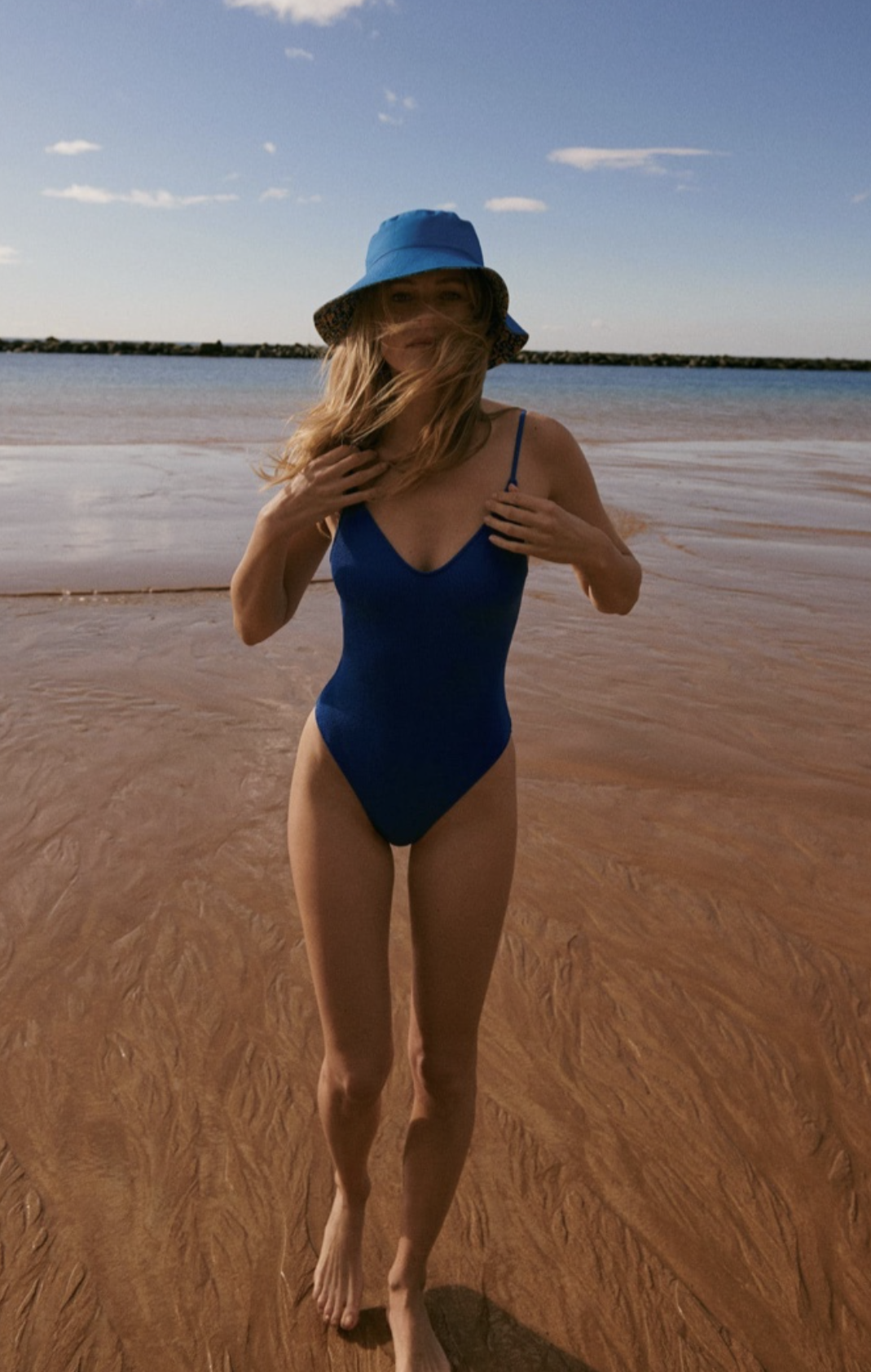The Health Benefits of Natural Pools, Thanks to Edita Vilkeviciute in Mango Swimwear 2023
/Take the Plunge in Mango Swimwear
Top model Edita Vilkeciviute is blessed to have a home in Ibiza, one featured in the July 2021 issue of Vogue Spain. We’re not clear if the top model swims in a natural pool on her property, but they are prevalent on the famous Spanish island in the Mediterranean.
In these images Edita poses in Mango swimwear from the 2023 spring/summer collection. The shoot takes place in San Andrés, Tenerife — part of Spain’s Canary Islands off the coast of southern Morocco and the disputed Western Sahara. Photographer Pepe Lobez [IG] captures the famous Lithuanian beauty — who is in high demand for sensual summer fashion stories and campaigns — styled by Rebeca Abad and Pili Álamo. Patricia Diaz Manzano provides the art direction.
Biophilia Is Branded in Our DNA
Biophilia, a term derived from the Greek words for "life" and "love or affection," refers to the innate human instinct to connect with nature and other living beings. AOC believes that this concept is deeply ingrained in our DNA and plays a significant role in our overall well-being. There are many ways to experience biophilia — a love of live plants at home is a key one.
A core way to experience the benefits of biophilia is through swimming, an activity that not only connects us with water, a vital element of nature, but also offers numerous physical and mental health benefits. Water is also key to Jungian psychology and the unconscious mind is symbolized by the vastness of the ocean and its crashing waves.
Swimming in Organic, Natural Waters
AOC readers are creatives, often with a strong attachment to nature, and we’re drawn to the design adaptability of natural pools. They are usually filtered organically, without that familiar chlorine odor. If chlorine reflects mankind’s attempt to dominate nature, an organic pool reflects an attitude of wanting to live in concert with nature — or to live by the principles of biophilia.
Natural pools are more expensive to create, but less expensive to maintain. A second small pool called a regeneration zone is vital to enjoying a natural pool. The water enters either a gravel filter or a constructed wetlands made of acquatic plants that clean the water. Most of us have at one time in our lives discovered a natural swimming hole on a walk through the forest. The water is typically crystal clear, because it has been cleansed by nearby plants as it runs along the natural terrain. Note, though, that there is typically sediment settled at the bottom of the swimming hole.
Health Benefits of Swimming in Natural Sunlight
Swimming in natural environments such as rivers, lakes, and oceans offers numerous health benefits. Not only does it provide a relaxing and peaceful form of exercise, but it also helps to alleviate stress, improve coordination, balance, posture, and flexibility. Swimming in natural waters can help decrease inflammation, kickstart metabolism, and strengthen the immune system. A study found that open water swimmers who swam during the winter had higher antioxidant levels, which contribute to overall health and well-being.
In addition to the benefits of swimming in nature, swimming in sunlight offers its own set of advantages. Exposure to sunlight increases the brain's release of serotonin, a hormone associated with boosting mood and helping a person feel calm and focused. Adequate sunlight exposure is essential for maintaining healthy serotonin levels, which can help prevent seasonal affective disorder (SAD), a form of depression triggered by changing seasons.
Sunlight also plays a crucial role in the synthesis of vitamin D, which is vital for the absorption of calcium and phosphorus and supports normal immune system functions. Regular immersion in cold water, often found in natural swimming environments, has been shown to be a mild stressor and immune stimulant, increasing white blood cell count, an essential component of our immune system.
Swimming in natural waters also triggers the release of endorphins, the body's natural painkillers, which can help reduce anxiety and depression. The physical activity involved in swimming serves to convert excess stress hormones into muscle relaxation and promote the growth of new brain cells in areas that may atrophy under chronic stress. Swimming in nature is particularly helpful for people with chronic pain.
Incorporating biophilic design elements, such as the presence of water, into our daily lives can significantly improve our connection to nature and overall well-being. Swimming is an excellent example of how engaging with nature through physical activity can lead to numerous health benefits, both physically and mentally.
By embracing biophilia and incorporating activities like swimming into our daily or weekly routines, we can foster a deeper connection with nature and promote a healthier, more balanced lifestyle. It is a low-impact, enjoyable activity that can be practiced throughout one's lifetime, contributing to overall health and happiness.









































